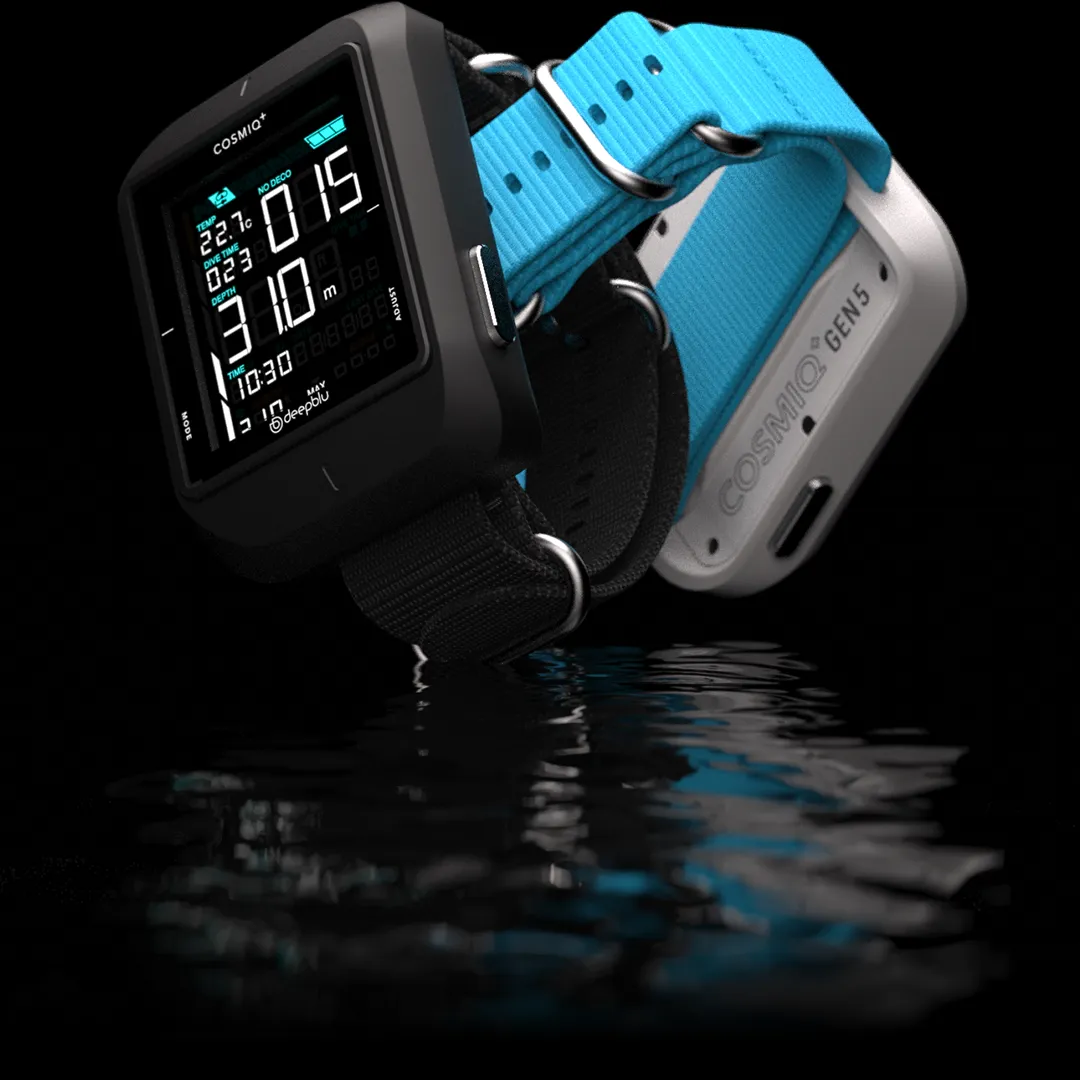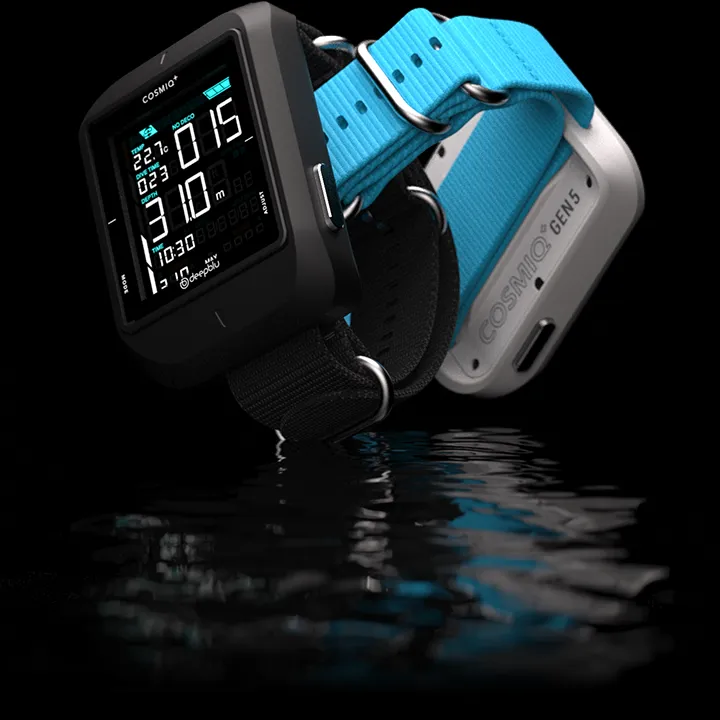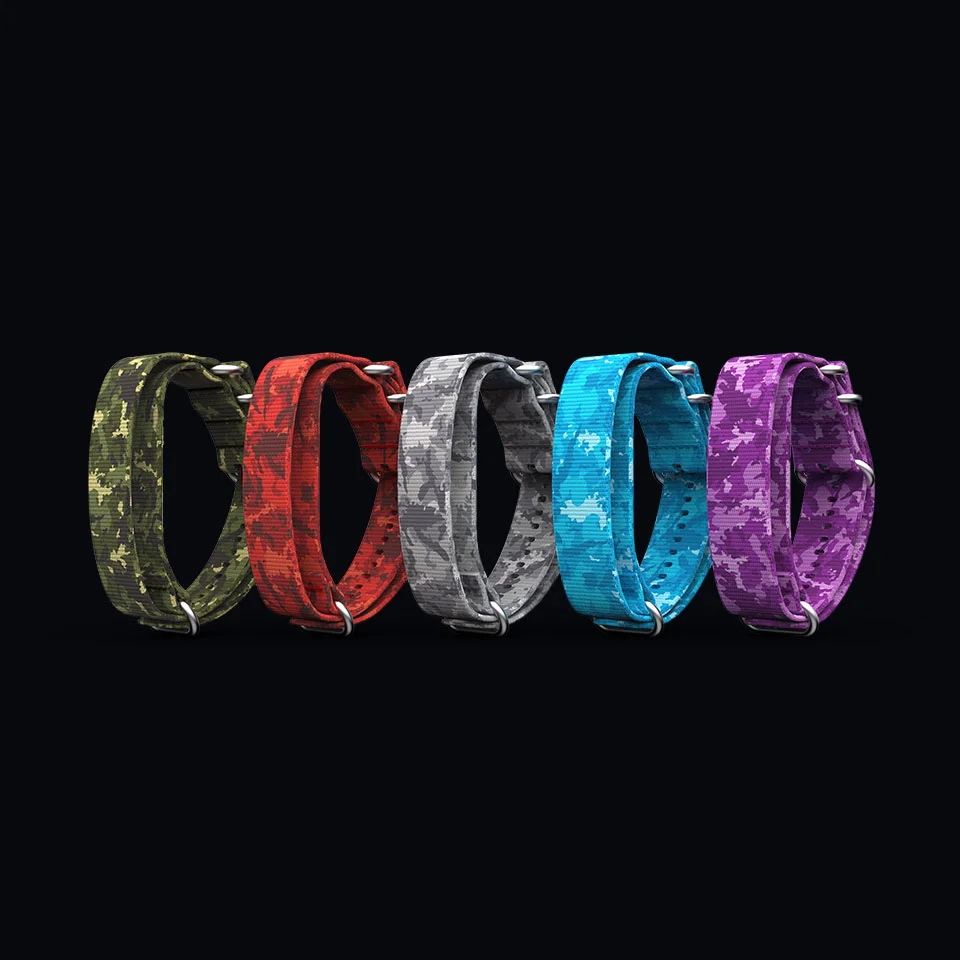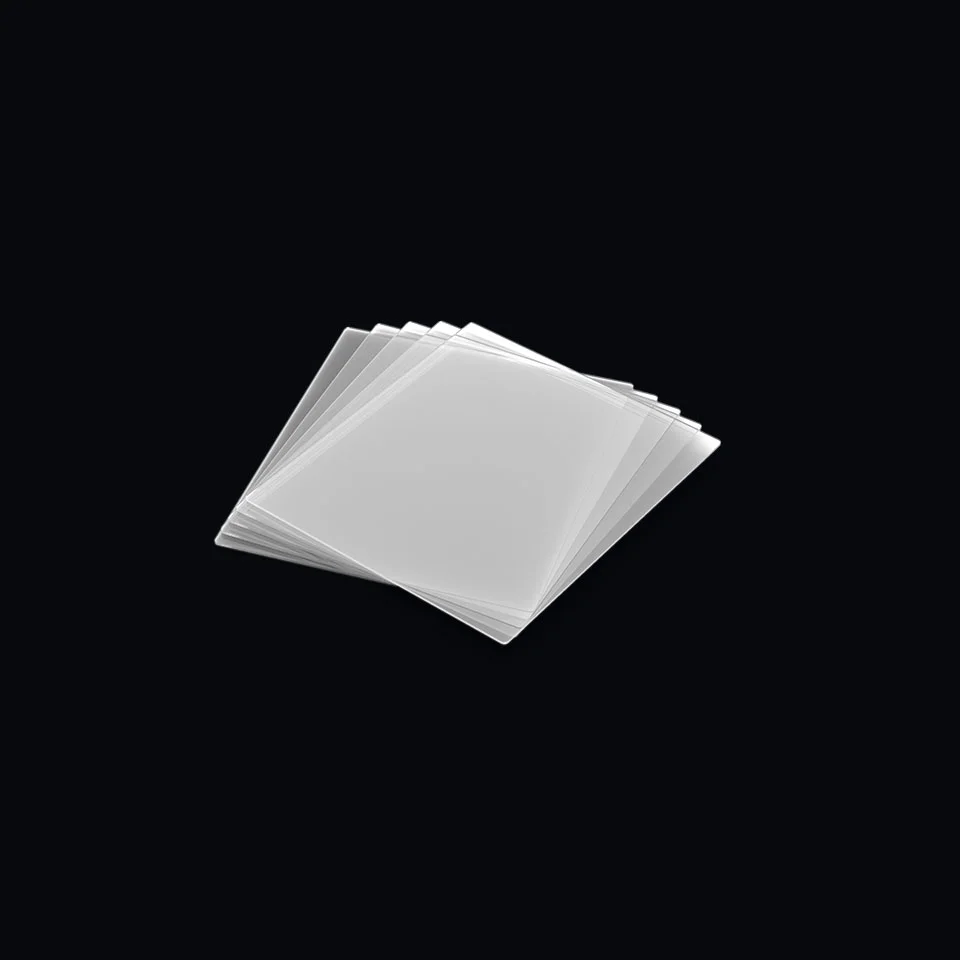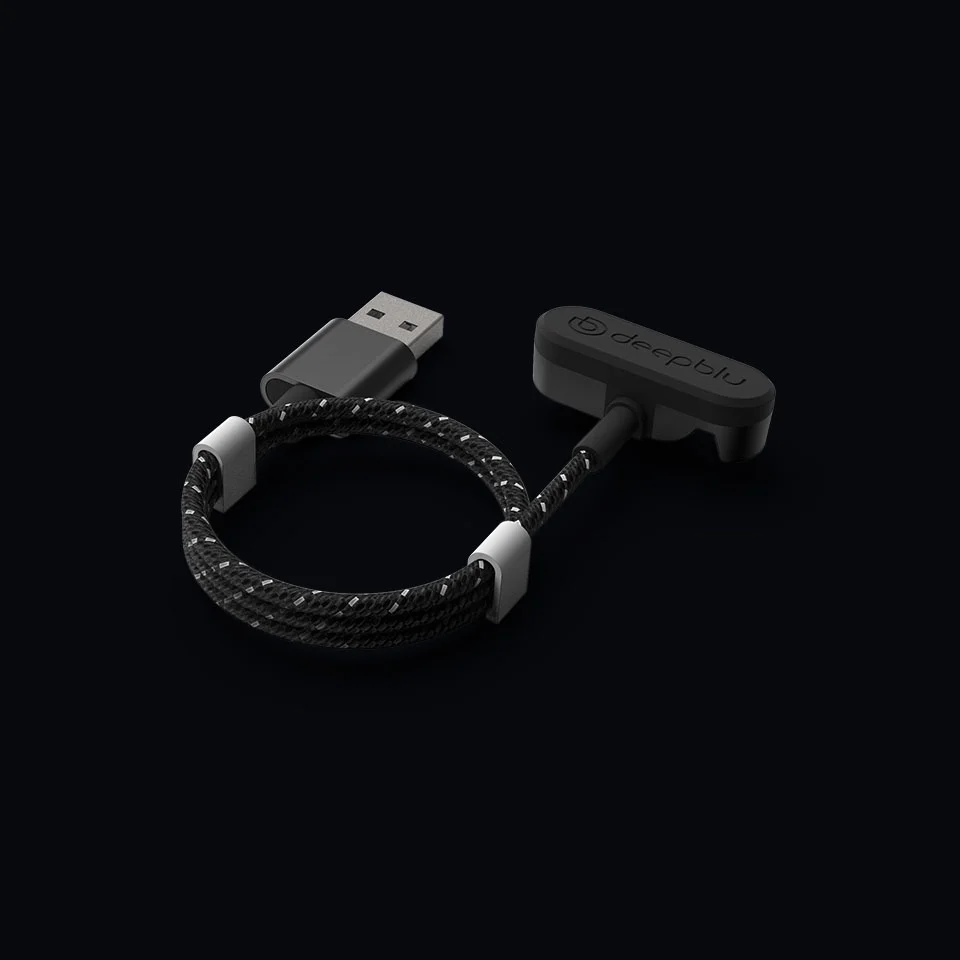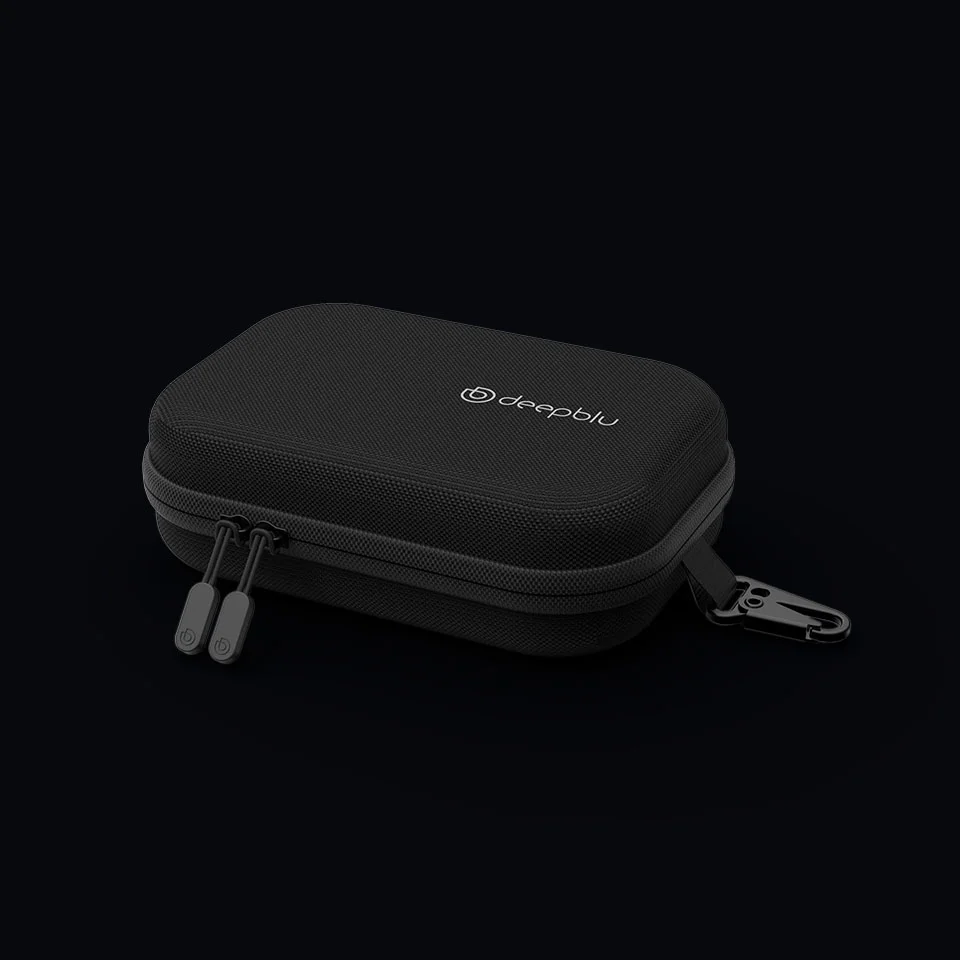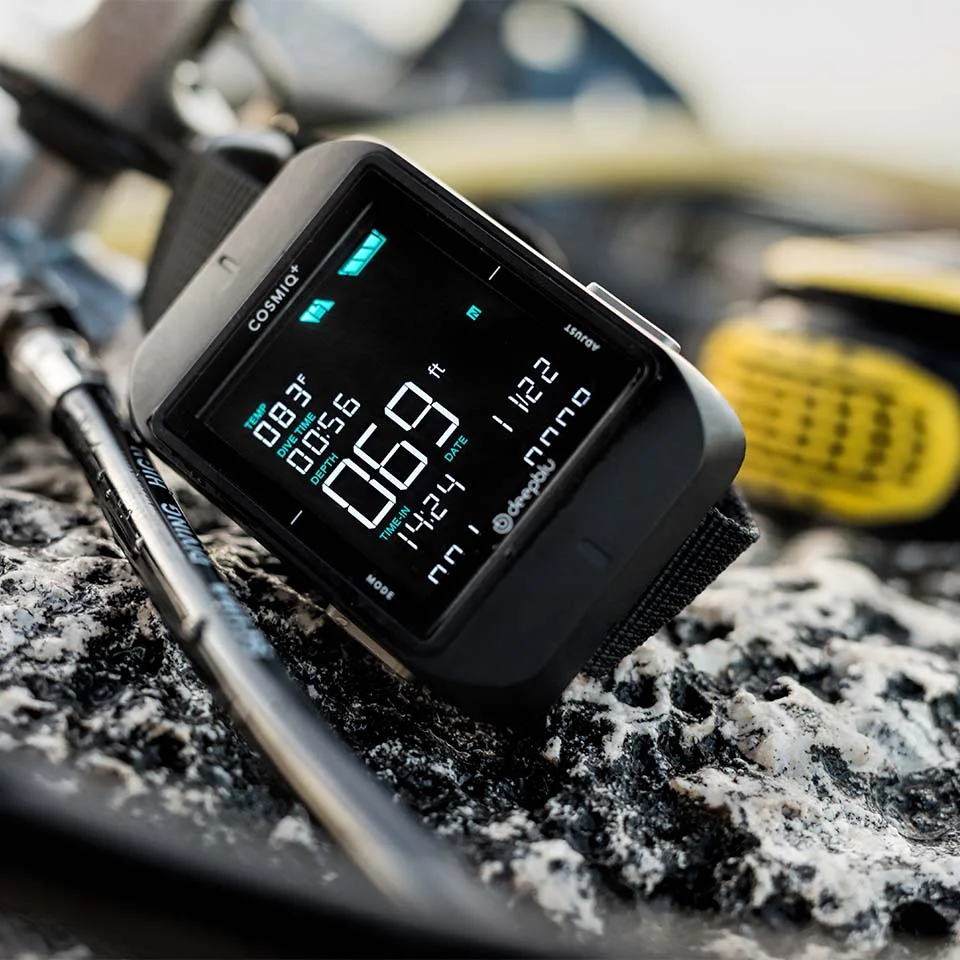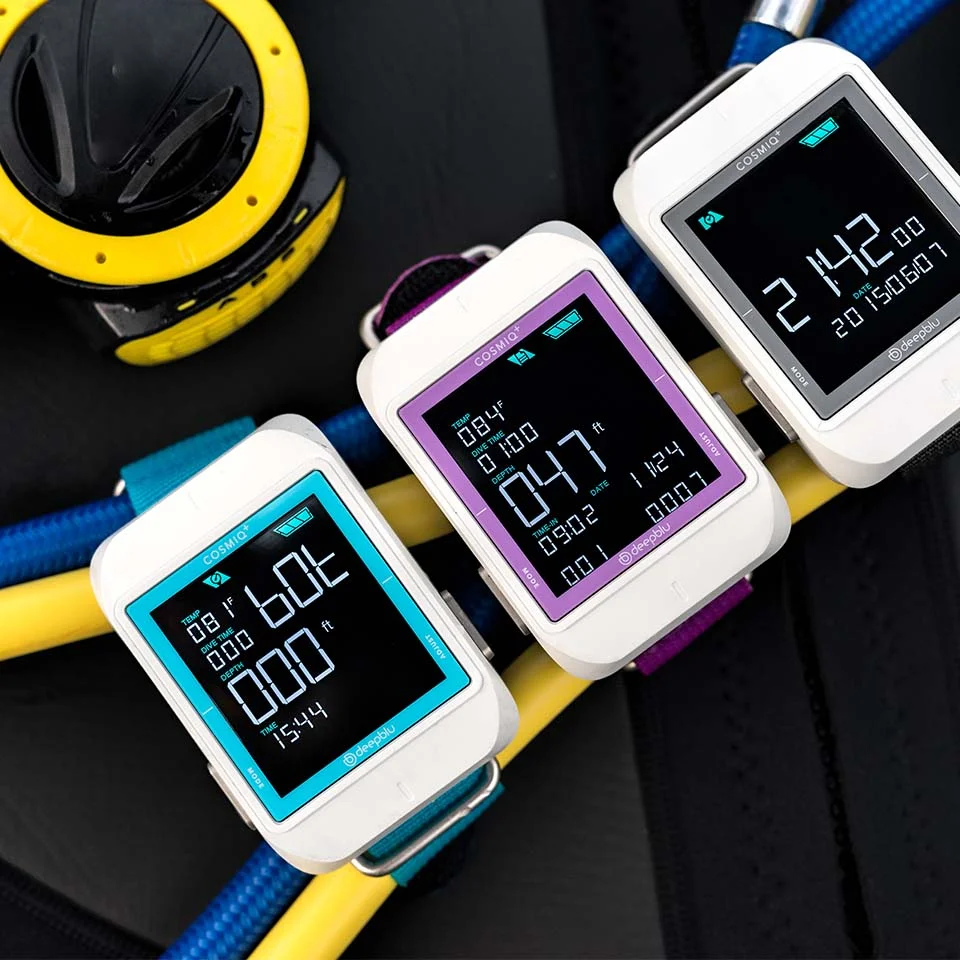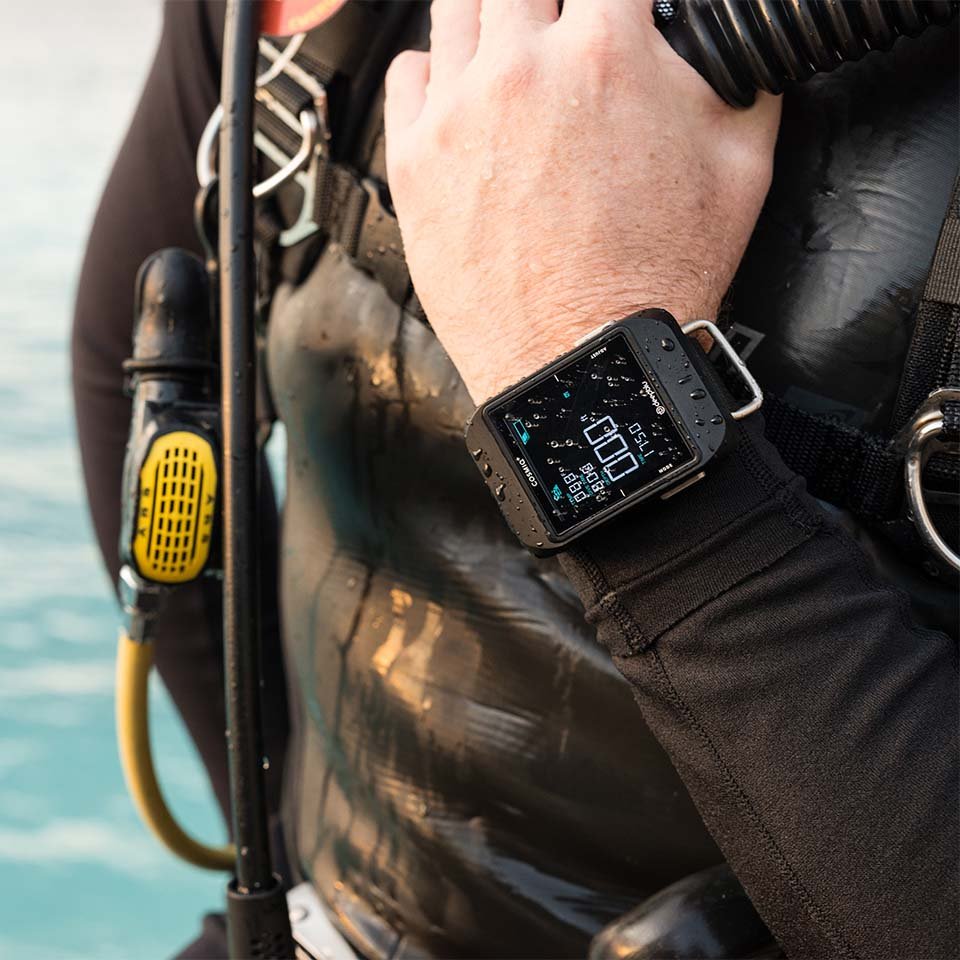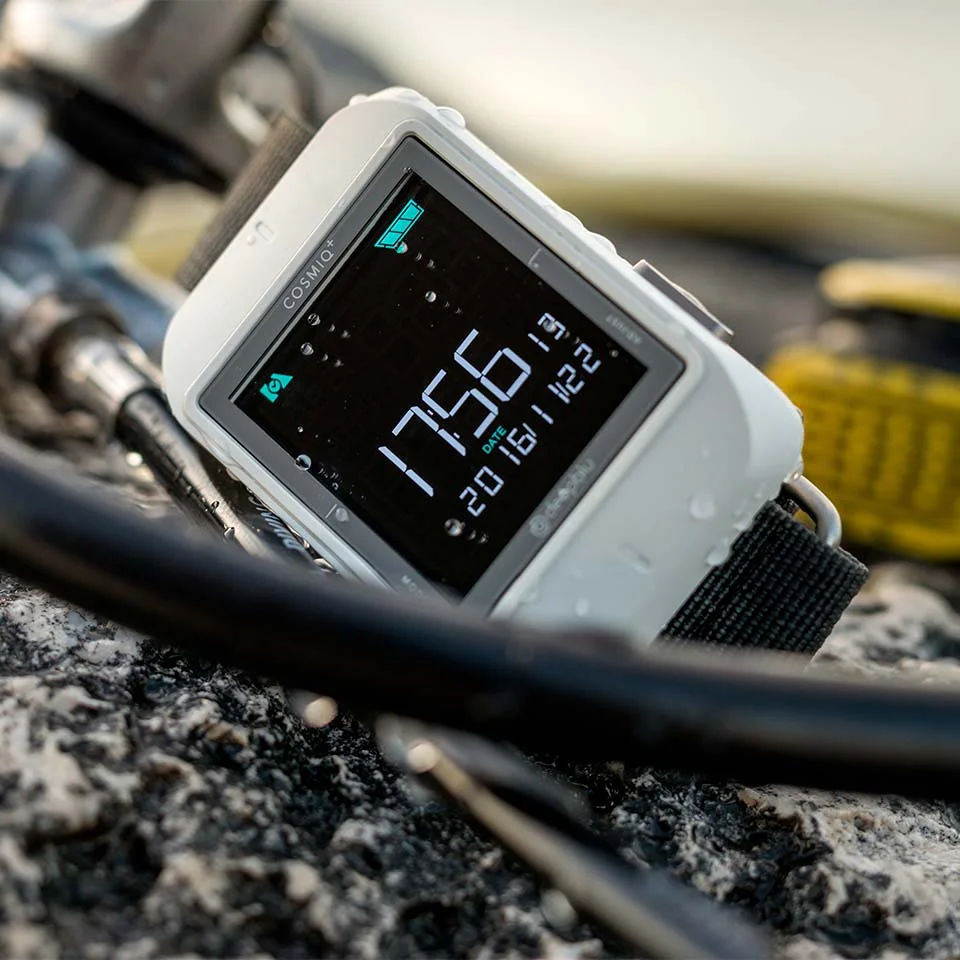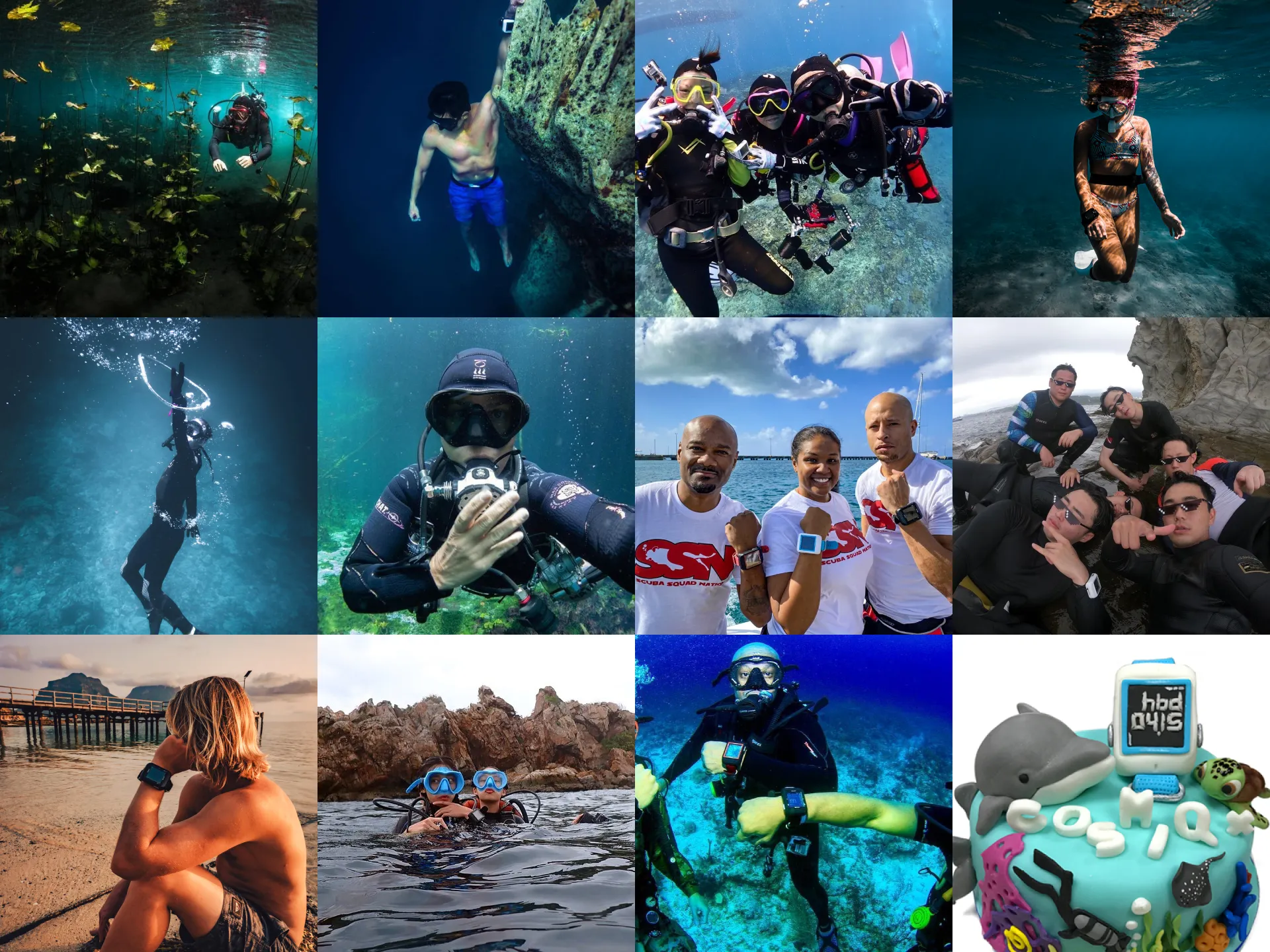As a startup with limited capital, finding a suitable wrist-sized display in 2015 was a challenge. We aimed to enhance the diving experience with a bright and high-contrast display, unlike the dim displays already available. We evaluated different options from various vendors and ultimately selected the EBTN Negative Image LCD. This display has a black background and high contrast, making it ideal for the dark underwater environment. Additionally, it has low energy requirements and a wide viewing angle.
COSMIQ Dive Computer
Designing Deepblu’s First Flagship Dive Computer & UI
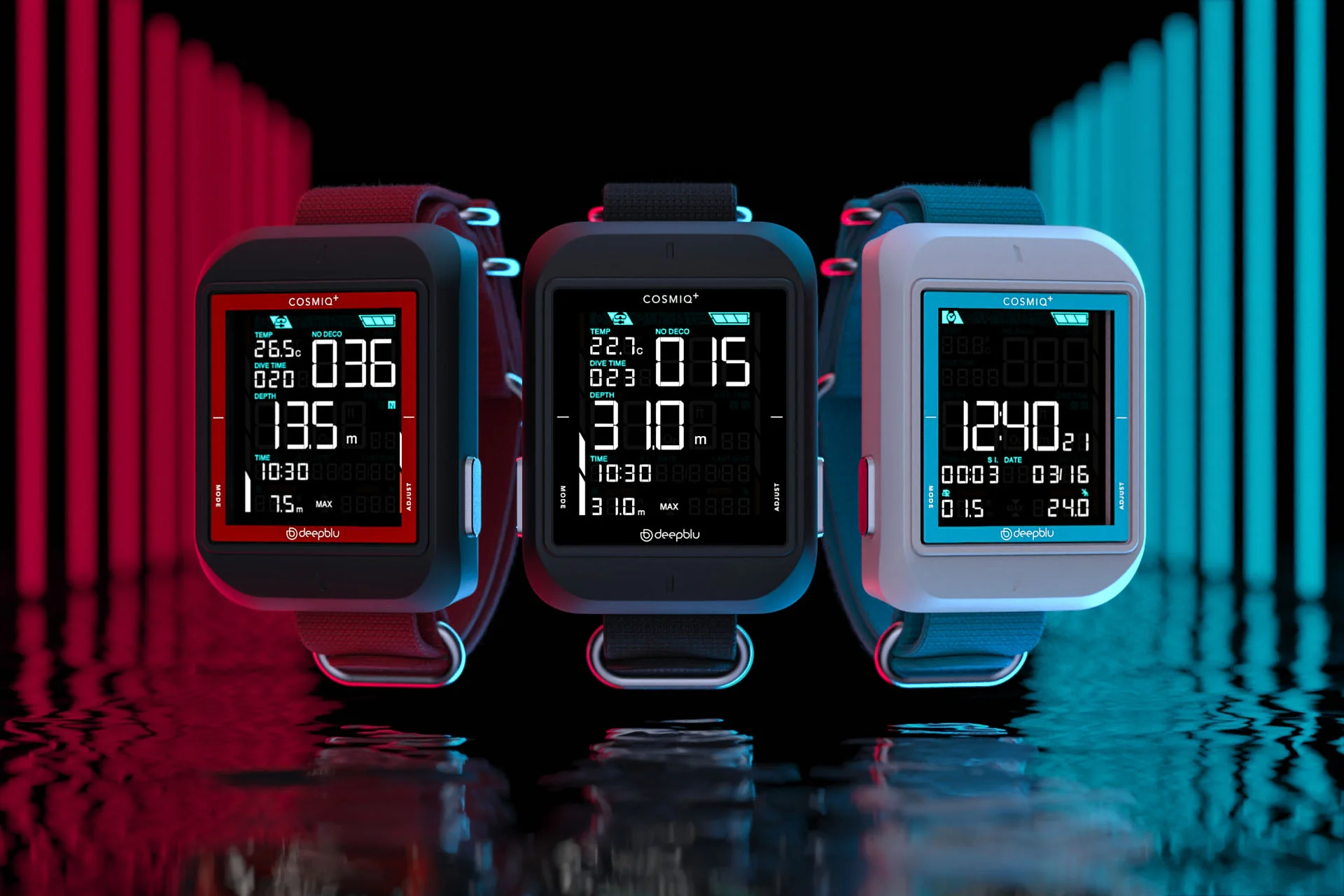
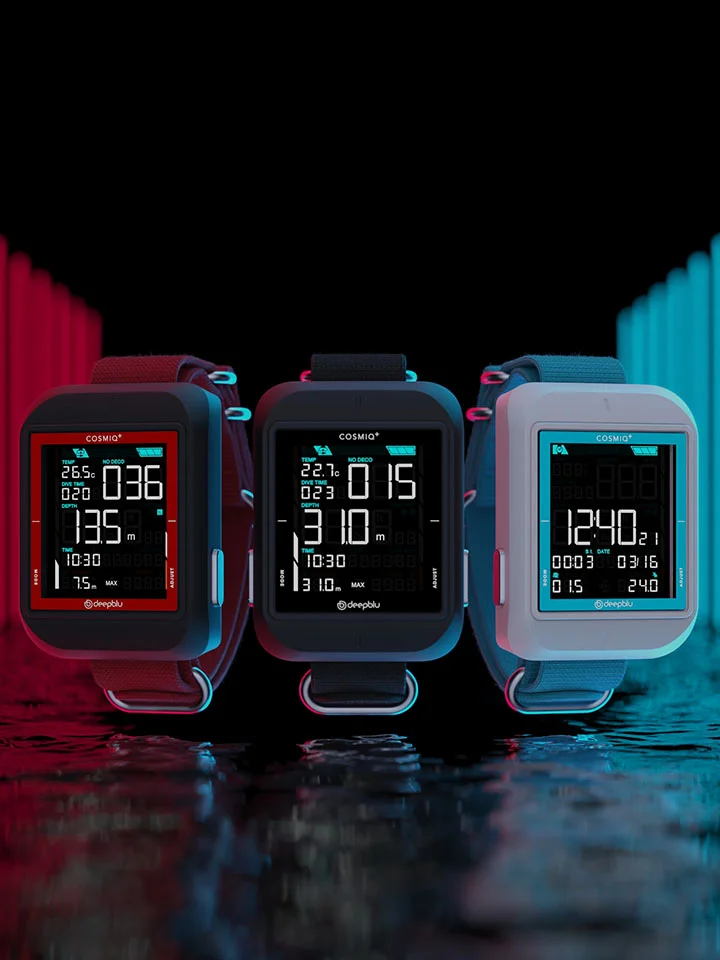
Produced at
Deepblu
Time frame
6 months
Versions
5 (2015 – 2020)
My role
As the lead designer, I built a dive computer and a cross-platform social app from the ground up. I worked closely with mechanical and electrical engineers from our manufacturing partner to develop the industrial design. Collaborating with our dive instructor/cofounder and a firmware engineer, we prioritized safety and ensured the user interface was intuitive and user-friendly.
Collaborators (7+)
Cofounder (dive expert), 1 mechanical engineer, 1 electrical engineer, manufacturing partner team, cofounder (production), firmware software engineer.
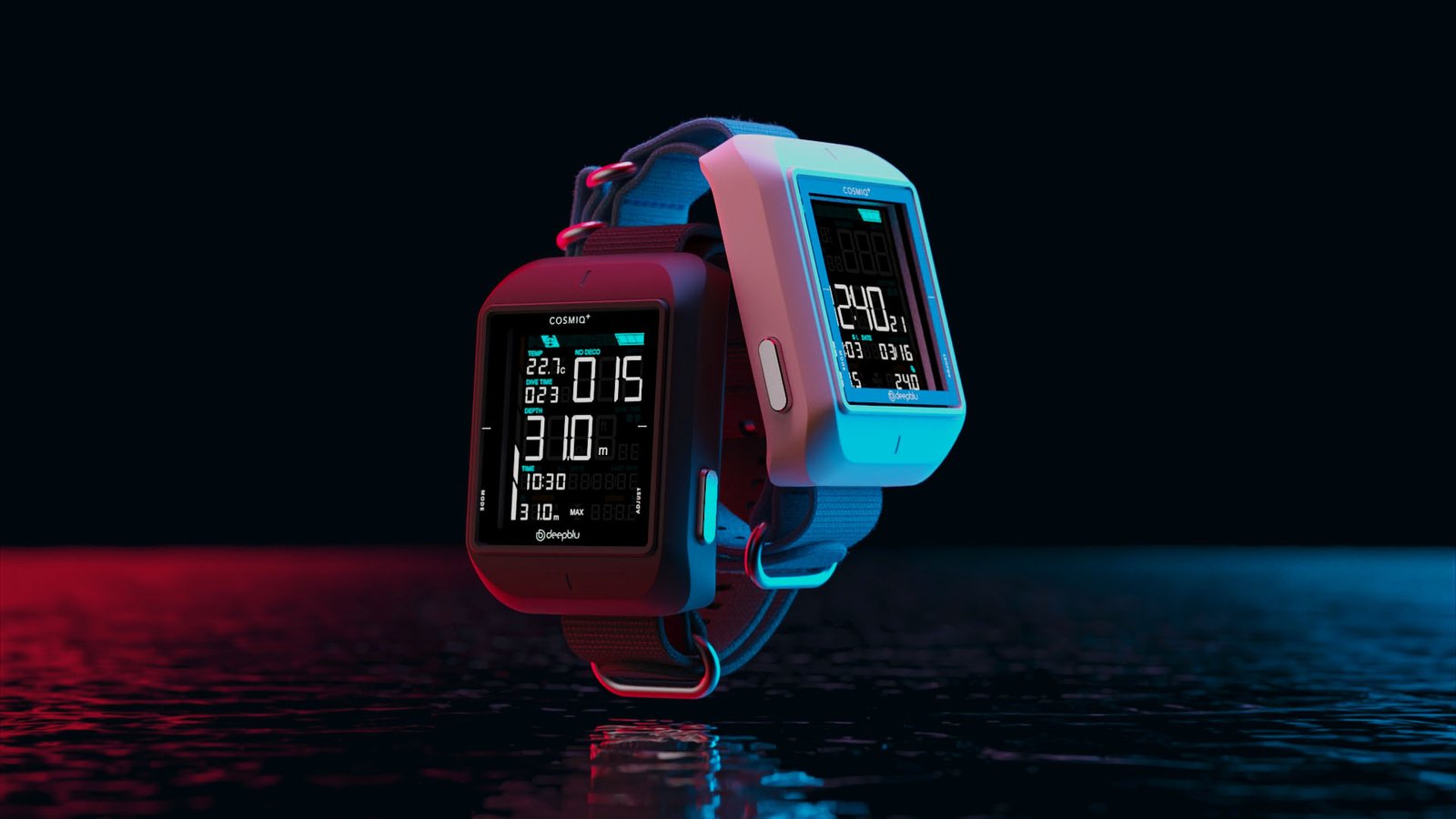

Hardware components
Crystal clear at any depth.
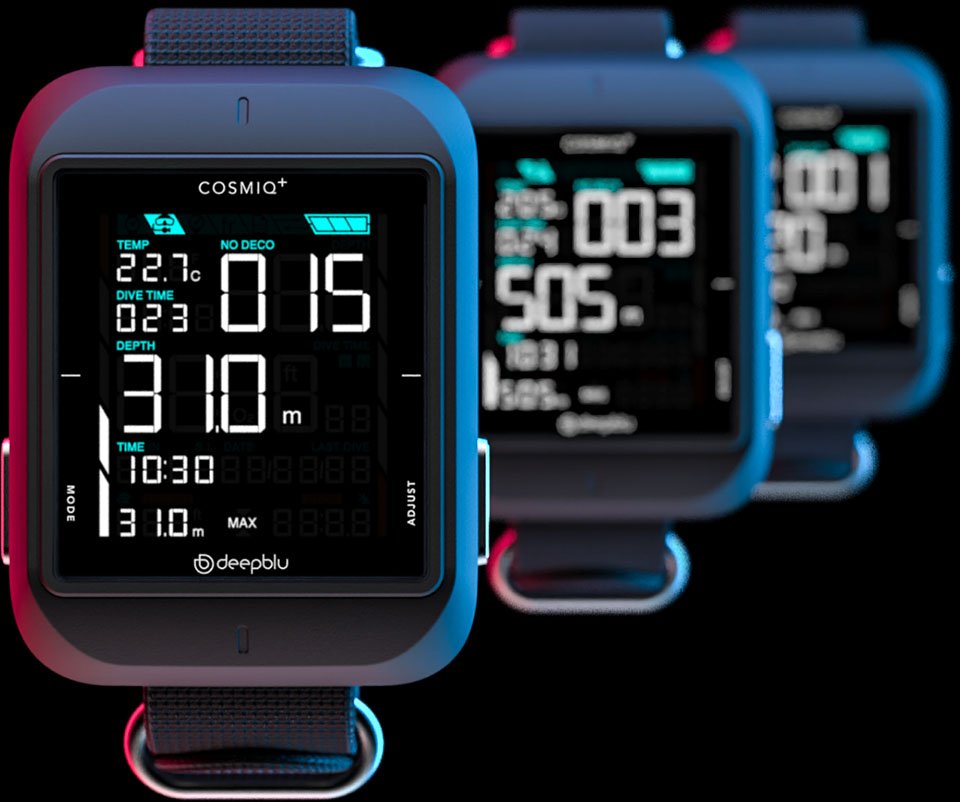
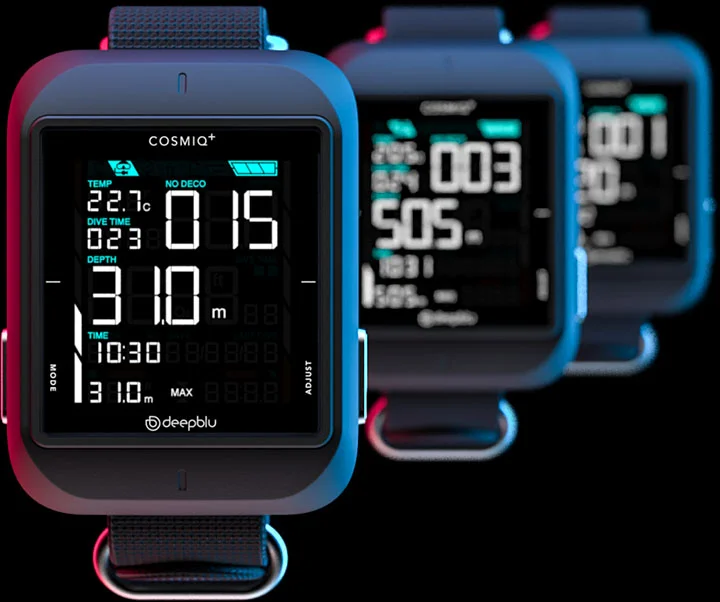
User interface
Simple & intuitive.
The selected display had a fixed number of picture elements (pixels) in on and off states, making it challenging to design a UI with little room for change. However, instead of treating the display constraint as a hindrance, it inspired us to build a simpler UI. With only two buttons, the left button toggles through modes, and the right one adjusts within a mode.
To design an intuitive UI, I took scuba diving lessons and researched heavily on the topic to understand the theory of the decompression algorithm for scuba diving.
Industrial design
The challenge
The LCD display panel’s size presented another issue, with a 9mm (3/8″) protrusion at the bottom of the display plus 3mm (1/8″) for the flex cable. Moving cores were used for the injection molding to create large undercuts to tuck in the PCBA and flex cable to minimize the size. A blend of fiberglass-reinforced polycarbonate was used for the chassis, providing stiffness and compression strength to withstand 10 bars (100m/328ft) of water pressure.
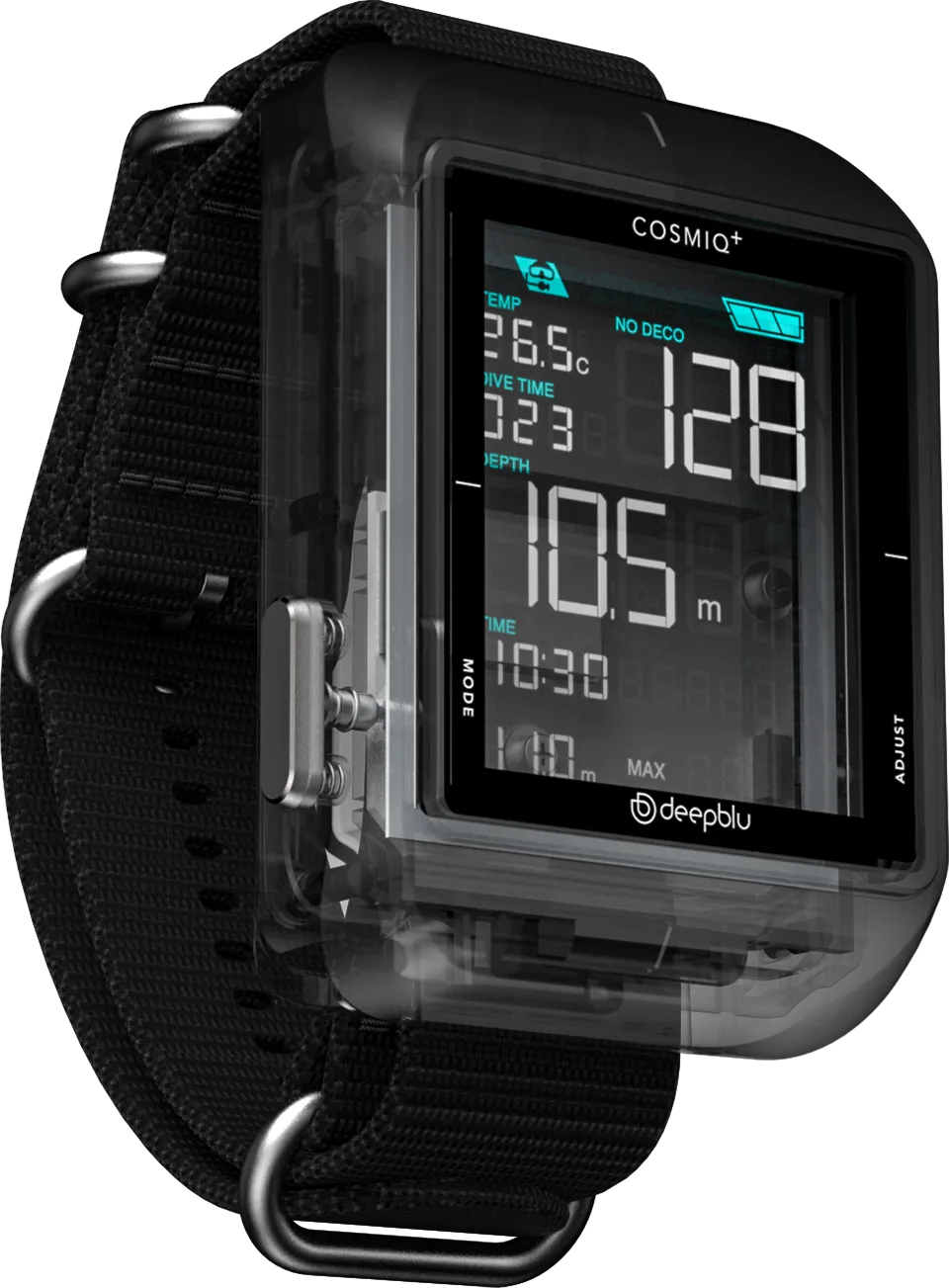
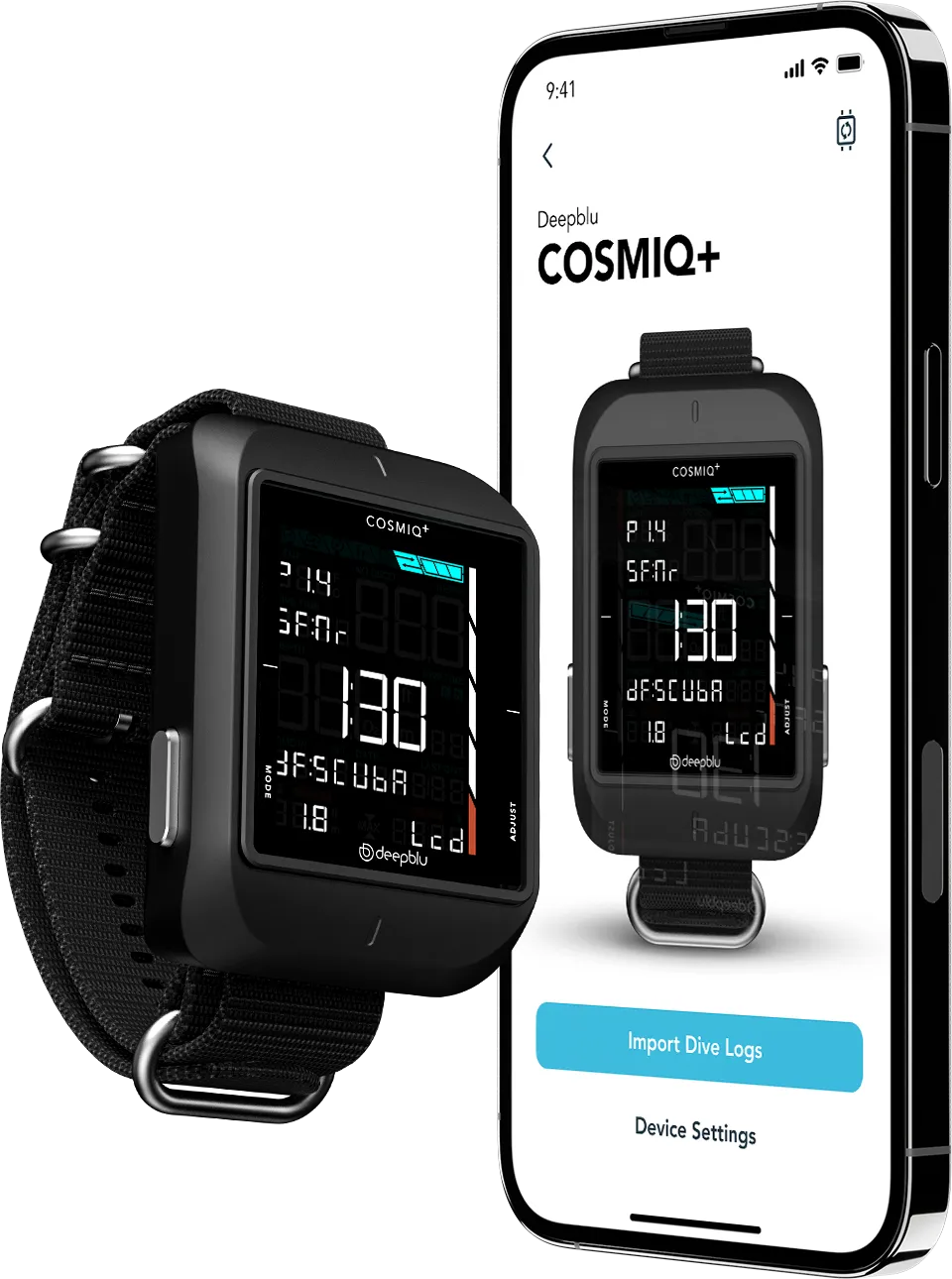
Hardware & software
Integrated design
A seamless pairing process was fundamental to a good user experience. To pair, toggle the COSMIQ into Sync Mode and open up the COSMIQ page on the Deepblu app. The app will start scanning for a nearby COSMIQ via Bluetooth. Once paired, you can upload dive logs, adjust settings, and get “over-the-air” updates.
Magnetic charging
You're in charge.
The COSMIQ dive computer was one of the few in 2015 with a rechargeable battery, eliminating the need for professional battery replacements. Each COSMIQ comes with a magnetic USB charging cable, and a full charge gives you up to 10 hours of diving and a standby time of up to a month.
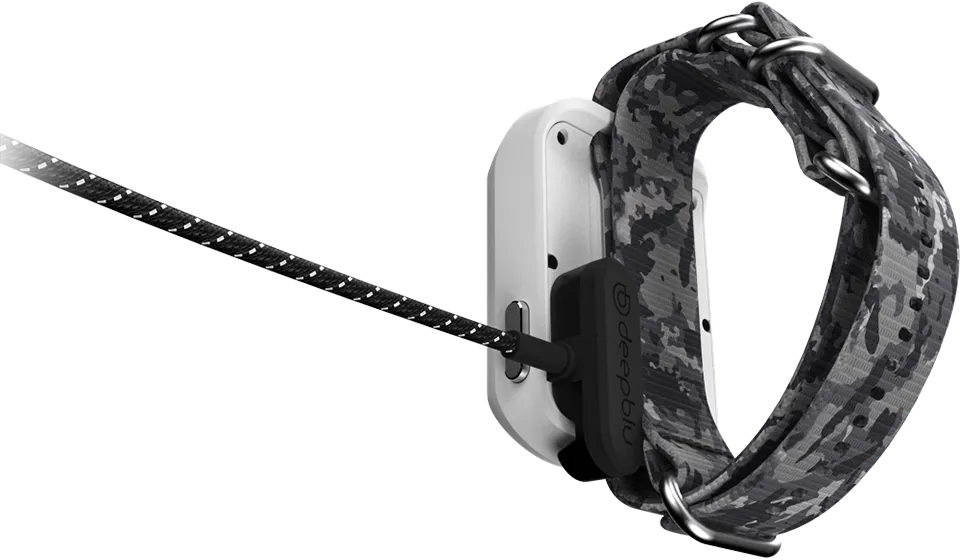
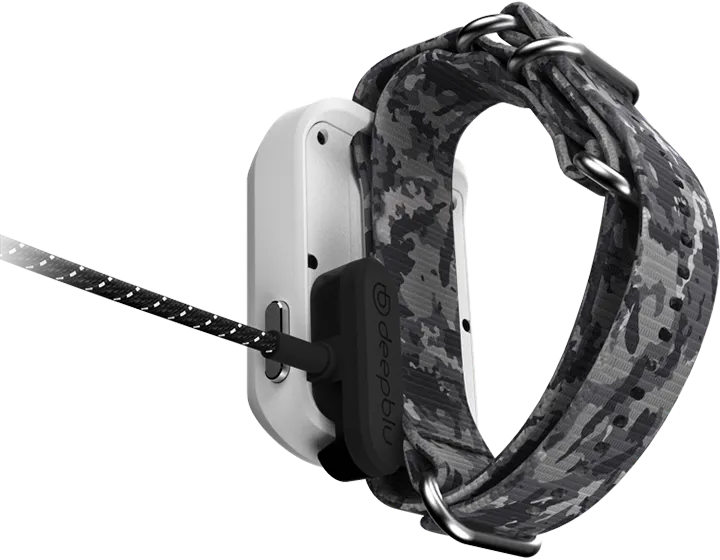
Finishes
Five colorways.
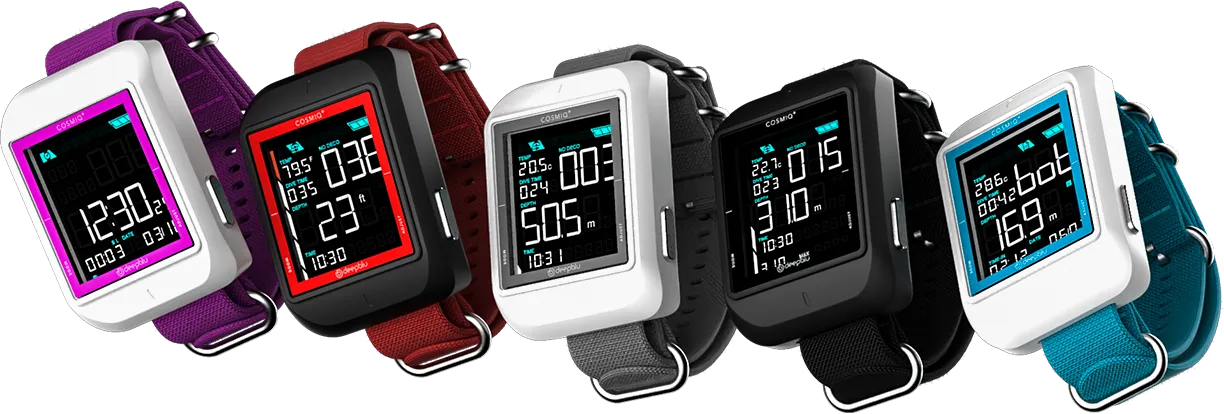
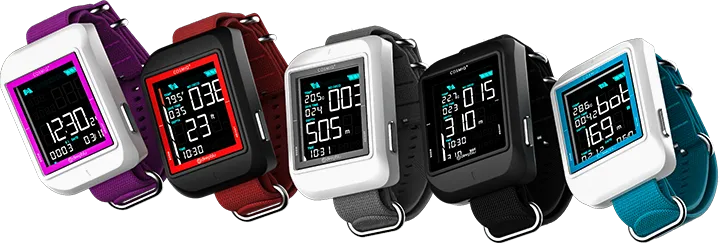
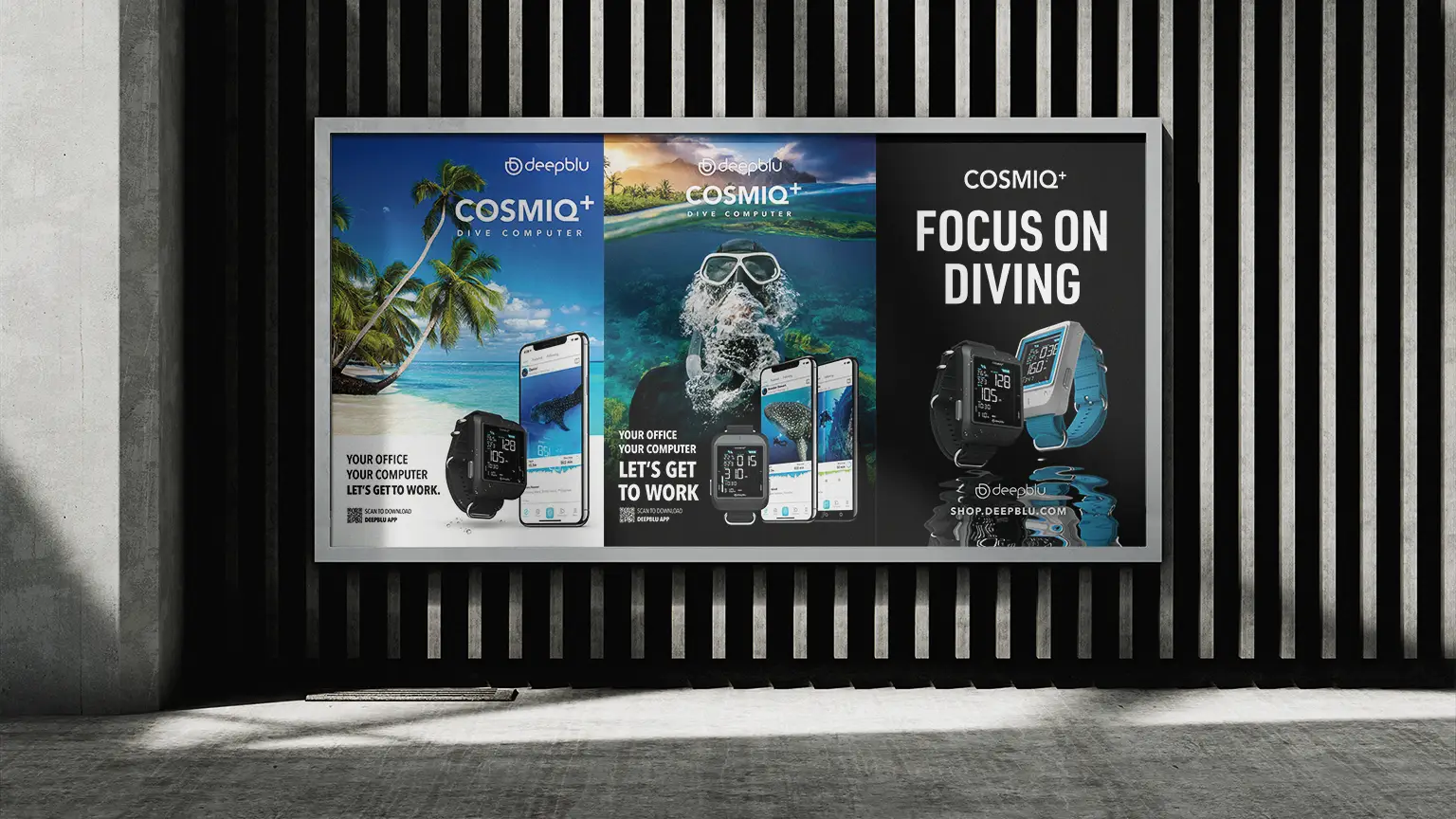
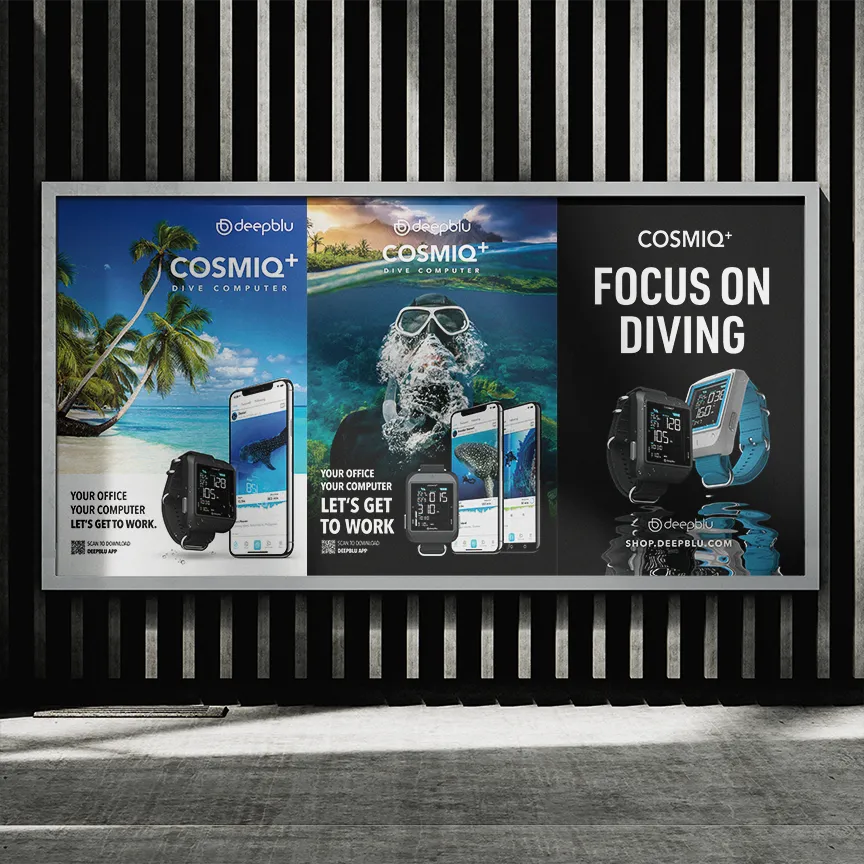
COSMIQ Dive Computer
5 generations sold
Overall, the COSMIQ dive computer was a major success for Deepblu, generating close to US$4 million in sales annually and contributing to a significant portion of the company’s revenue. Its innovative features, including the ability to synchronize data with external underwater cameras and its digital dive log user interface, helped set it apart from the competition. As the lead designer on this project, I am proud of the impact it had on the scuba diving and freediving community.
